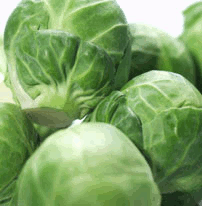What foods are best for reducing depression?
While food and depression can be linked, it's difficult to make food recommendations in the case of depression and affective disorders because there are so many different underlying patterns that can be involved with these diagnoses. Some statistics show that very close to 10% of the U.S. adult population may have regular symptoms of depression-meaning that 29 million people are affected. It would be normal to find many different underlying physical causes in a problem this widespread.
Most of the broad-spectrum dietary aspects of depression remain controversial. For example, there is some evidence of blood sugar and insulin imbalance in studies on depression, and some research on the benefits of a diet low in processed foods and low in refined sugar. In this same context, a series of five to six small, relatively frequent "mini-meals" may work better than a three-large-meal approach to food. The idea of "allergic depression" has also been investigated with controversial results. If you suspect that you may be allergic to any foods, it would be worthwhile to investigate further. You can use the information provided in our Allergy Avoidance Diet as a starting place.
There is one area of our metabolism, called methyl metabolism, which may be deficient and contribute to depression from a biochemical standpoint. Since B vitamins such as folate, B6, B12, and choline are heavily involved in methyl metabolism, it can sometimes be helpful to increase intake of foods that are rich in these B-complex vitamins. If you go to our Essential Nutrients section (http://www.whfoods.com/nutrientstoc.php), you can select each of the above nutrients and find a list of foods that are your best sources of the nutrient. You can also use our Recipe Assistant (http://www.whfoods.com/recipestoc.php#recipes) to find recipes that provide significant amounts of these B-complex vitamins. Even though many of the recent clinical studies involving B vitamins and depression focus on dietary supplements rather than food, we are confident that food changes can be helpful in this context because, when combined, many of the World's Healthiest Foods can provide doses of these vitamins in amounts similar to the amounts used in research studies.
Adequate protein is important in healing from depression since the amino acids in protein are needed to make the nervous system messaging molecules that are involved with this aspect of mental health. It can also be helpful to spread out protein intake over the course of the day and to include 5-10 grams (if possible) whenever you eat a meal or snack.
Foods rich in omega-3 fatty acids would also be important to include in a list of foods potentially helpful with depression. Several recent research studies have shown positive results in this regard. Once again, these studies have usually focused on dietary supplements rather than food, but we believe that similar results can be possible when using whole foods, especially foods like salmon that can provide several grams of omega-3 fatty acids per serving.
Remember that all of the non-food issues-like exercise, fresh air, cares and worries, and others-can play as great or greater a role in depression than your meal plan. While we definitely encourage you to experiment with your diet and see what might be helpful, we also encourage you to explore and get support in these other areas, including discussing this with your healthcare practitioner.
For more information on this topic, see:
References:
Bourre JM. Dietary Omega-3 Fatty Acids and Psychiatry: Mood, Behaviour, Stress, Depression, Dementia and Aging. J Nutr Health Aging. 2005;9(1):31-8.
Jacka EN, Pasco JA, Henry MJ, et al. Dietary Omega-3 Fatty Acids and Depression in a Community Sample. Nutr Neurosci. 2004;7(2):101-6.
Miyake Y, Sasaki S, Tanaka K, et al. Dietary Folate and Vitamins B(12), B(6), and B(2) Intake and the Risk of Postpartum Depression in Japan: The Osaka Maternal and Child Health Study. 2006 Nov;96(1-2):133-8.
Silvers KM, Woolley CC, Hedderley D. Dietary Supplement Use in People Being Treated for Depression. Asia Pac J Clin Nutr. 2006;15(1):30-4.
Takenaka M, Kanada S, Hamazaki T, et al. Dietary Supplementation With N-3 Polyunsaturated Fatty Acids Attenuates the Depression of Food-Motivated Behavior During Zymosan-Induced Peritonitis. Biol Pharm Bull. 2005;28(7):1291-3.
Tolmunen T, Hintikka J, Ruusunen A, et al. Dietary Folate and the Risk of Depression in Finnish Middle-Aged Men. A Prospective Follow-Up Study. Psychother Psychosom. 2004;73(6):334-9.






